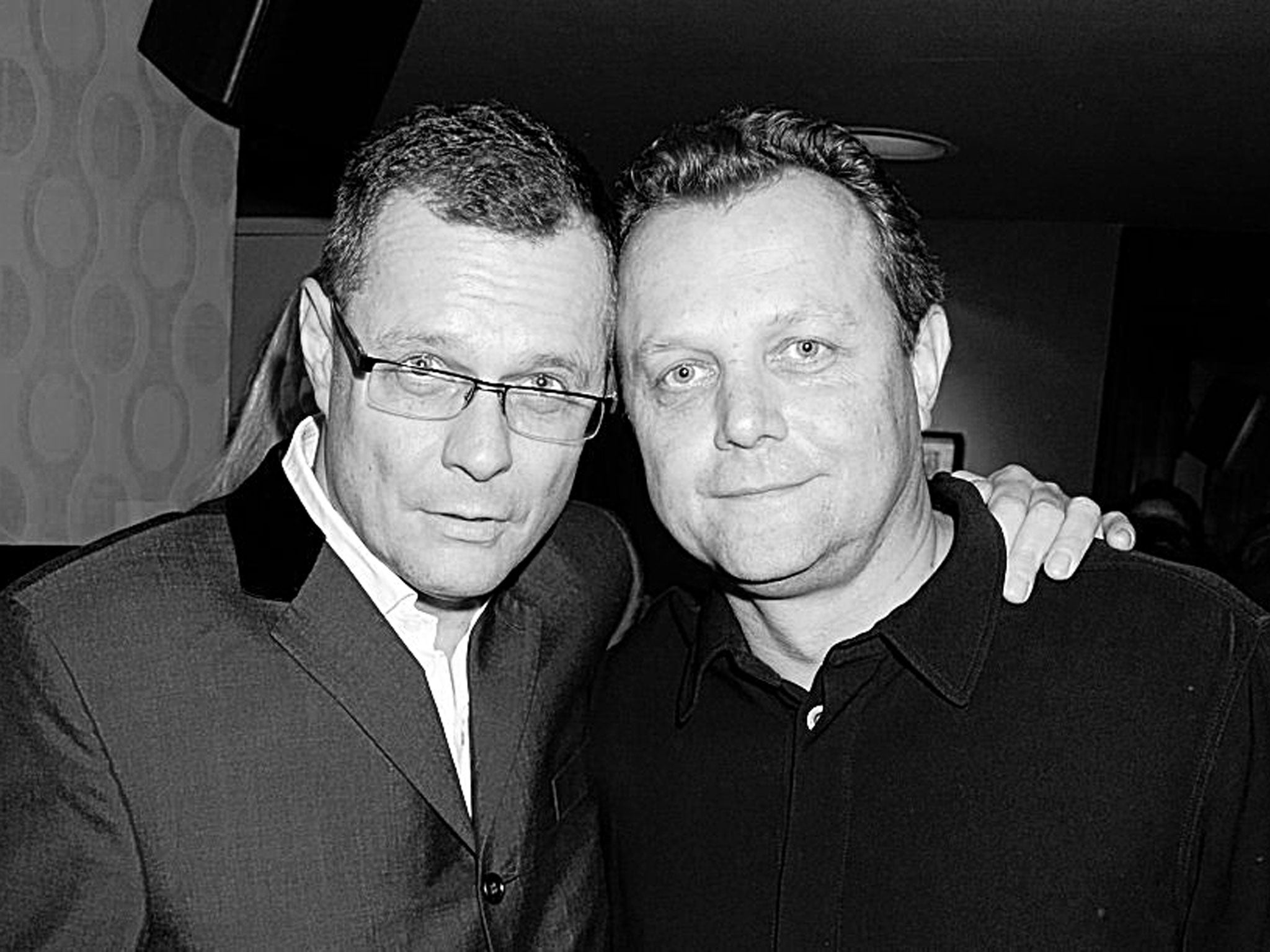Addison Cresswell: Talent-spotter who brought a string of comedians to the fore and forged a new format for television comedy

By the time of his sudden death, Addison Cresswell was undeniably a captain of the British comedy industry. Tall, fast-talking, dapper and not averse to thumping tables to make a point, the power he wielded as director of the comedy management agency Off The Kerb gained him a fearsome reputation, and one of which he was well aware. In 2000, he brought up his having been described as "the Darth Vader of the Fringe" before his interviewer had a chance to. His philosophy was this: "Small acts feed off the big ones and you need a few big names to make people feel it's worth going to."
Cresswell's way of working was to put on acts at the Edinburgh Fringe, then guide them to stardom through tours and television. His career represents the assimilation into the showbusiness mainstream of the 1980s alternative comedians, his preferred acts being solo stand-ups, generally male, culminating in the highly successful, but non-threatening, non-political figure of Michael McIntyre. Tellingly, his most high profile, and reputedly most favoured, client was Jonathan Ross, a creation of the small screen, rather than the stage.
The panel games and stand-up showcases produced by Cresswell's television company, Open Mike Productions, were the equivalent of the variety show formats of earlier decades. Even shows from other companies, such as Mock The Week, reflected this trend. Off The Kerb supplied its host, Dara O'Briain.
Belying a public persona not unlike a Cockney villain, he was born in Brighton, and attended Longhill High School, Rottingdean. His father was a painter who also lectured at Goldsmith's College, which presumably influenced what Cresswell called "doing illustration at Brighton Polytechnic", where he became entertainments officer. He averred that he had been "probably the richest student ever. I used to put my grant in the building society and live off the money I used to make at the club."
His inclination as a promoter was then towards music: he claimed to have obtained the services of U2 for £100. Following a visit to London's Comedy Store with friend and future performer Roy Hutchins, and finding none of the acts were "being looked after", he initially signed the comic poet John Hegley. Named by Hegley, The Off the Kerb Roadshow then toured the country. Cresswell inaugurated the management company of the same name from the kitchen table of a basement flat in Peckham, south London.
His first show at the Edinburgh Fringe was in 1982, entitled simply Alternative Cabaret and featuring alternative comedy "godfather" Tony Allen. Cresswell recalled: "The only slot you could get was after the boring play from hell ... We'd be packed out and they'd be half full for the play." The following year at the Little Lyceum, Cresswell introduced Harry Enfield, then half of a double act, Dusty and Dick.
By 1987, in an Off The Kerb season at Holland Park Theatre, west London, Cresswell was presenting Enfield, Paul Merton, Phill Jupitus (then called Porky the Poet) and Julian Clary, who went into the West End in Camping At The Aldwych (1990). Cresswell gained his first television credit as associate producer on Clary's sitcom Terry and Julian (C4, 1992).
In his autobiography, A Young Man's Passage, Clary wrote: "He was proud of the comedians he looked after, and viewed us a bit like racehorses. When he signed Jo Brand he said to me 'It's good to have a female in the stable.'"
The first television series from Open Mike was The Jack Dee Show (C4, 1992 and 1994), translating the deadpan stand-up's act to a Sixties supper-club setting. Cresswell continued to oversee BBC, ITV and Channel 4 vehicles for Dee throughout the Nineties, followed by his sitcom Lead Balloon (BBC, 2006-11). The panel game It's Only TV ... But I Like It (BBC, 1999-2002) fielded three Cresswell signings – host Ross as host and team captains Clary and Dee – while Off The Kerb continued to produce Ross's Saturday morning Radio Two show.
Not all of the cross-pollination was successful. Lee Evans's So What Now? (2001), made for BBC1 by Little Mo Films, a company formed by Cresswell and Evans, another early find, lasted one series. An appearance by Marc Wootton as spoof psychic Shirley Ghostman, on Ross's show in 2005 led to complaints. Wootton sought different representation; the clip was removed from YouTube.
When Ross and comedian Russell Brand taunted the actor Andrew Sachs on air in 2008, it raised questions about the £18m deal with the BBC that Cresswell had secured for Ross. Ross was suspended, but Friday Night with Jonathan Ross was replaced in the same slot, in November 2008, by Live at the Apollo, hosted by Cresswell's McIntyre.
In this paper earlier this year, Stewart Lee – not from Cresswell's stable – was forthright about the agent and his peers: "You have a ridiculous situation where a client of the management company is interviewing another client of a management company on a programme made by the production company owned by the management company."
Despite his real-life volubility, Cresswell was rarely interviewed, and never appeared on documentaries about the comedy business. He did much fund-raising for Great Ormond Street Hospital.
Addison Cresswell, agent and producer: born Brighton 28 June 1960; married Shelley; died London 23 December 2013.
Subscribe to Independent Premium to bookmark this article
Want to bookmark your favourite articles and stories to read or reference later? Start your Independent Premium subscription today.

Join our commenting forum
Join thought-provoking conversations, follow other Independent readers and see their replies